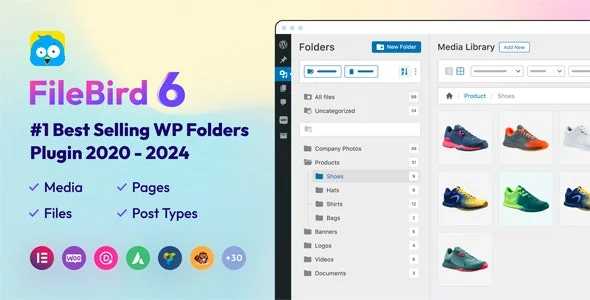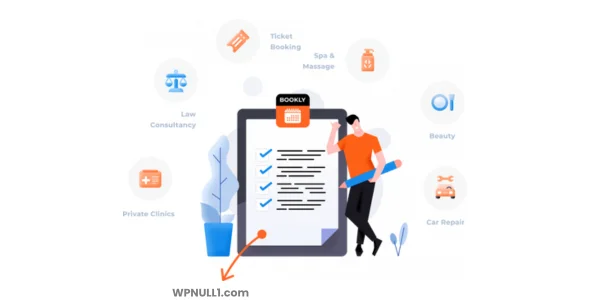Perfmatters Plugin Nulled is designed to enhance website speed and overall performance by offering simple yet powerful tools for WordPress users. Speed and performance are crucial factors for any website, as they directly impact user experience, SEO rankings, and conversion rates. Perfmatters focuses on reducing unnecessary elements that slow down your site, optimizing scripts, and enabling performance-boosting options without requiring any coding knowledge.
In this blog post, we’ll delve into the key features of Perfmatters, discuss who this plugin is ideal for, highlight its pros and cons, and compare it with some popular alternatives to help you determine whether Perfmatters is the right solution for your website.
Key Features of Perfmatters Lightweight WordPress Performance Plugin
1. Script Management
One of the standout features of Perfmatters Lightweight WordPress Performance Plugin Free Download is its ability to optimize and manage scripts on your website. Many WordPress sites load unnecessary scripts on every page, leading to slower load times. Perfmatters allows you to selectively disable scripts on pages where they’re not needed, reducing bloat and improving site performance. This feature is particularly useful for sites using multiple plugins, as it gives you control over which scripts are loaded based on page requirements.
By disabling unnecessary scripts, such as those from plugins that aren’t required on every page, you can cut down on HTTP requests and reduce page size, leading to faster load times.
2. Database Optimization
Perfmatters also includes features for optimizing your WordPress database. Over time, your database can accumulate a lot of unnecessary data, such as post revisions, drafts, and trashed posts, which can slow down your site. The plugin allows you to clean up this data, ensuring that your database runs efficiently and doesn’t contribute to slow performance.
The database optimization tool is simple to use and offers options to schedule automatic cleanups, so you don’t have to worry about managing this aspect of site performance manually.
3. Performance-Boosting Tweaks
In addition to script management and database optimization, Perfmatters provides a variety of small performance tweaks that collectively have a big impact on your site’s speed. These tweaks include disabling emojis, removing query strings from static resources, disabling embeds, and removing unused meta data. These small changes can significantly reduce the amount of data loaded on each page, leading to faster load times.
These optimizations are particularly useful for users who don’t have technical expertise, as Perfmatters simplifies the process of enabling these tweaks with a simple toggle interface.
Who is Perfmatters Lightweight WordPress Performance Plugin Ideal For?
Perfmatters is ideal for a wide range of WordPress users who want to improve their site’s performance without diving into complex technical solutions. Here are some groups who will benefit the most from using this plugin:
- Bloggers and Content Creators: Bloggers who run content-heavy sites with multiple plugins will find Perfmatters useful for speeding up their site by disabling unnecessary scripts on specific pages or posts. It’s a great way to maintain site speed while running several WordPress plugins.
- E-commerce Stores: Online stores running WooCommerce or other e-commerce plugins often face performance issues due to the large number of scripts and resources that need to be loaded. Perfmatters helps store owners reduce these issues by allowing them to disable unneeded features and scripts on non-essential pages like blog posts or content pages.
- Business Websites: Corporate websites often need to present a professional, fast-loading platform to potential clients. Perfmatters ensures that performance is optimized, leading to faster load times, better user experiences, and improved search engine rankings.
- Freelancers and Agencies: For web developers and agencies managing multiple WordPress websites, Perfmatters provides an efficient way to improve performance across multiple projects without needing extensive coding. The ease of use makes it a valuable tool for maintaining client websites.
Pros and Cons of Perfmatters Lightweight WordPress Performance Plugin
Pros:
- Simple Script Management: Perfmatters makes it easy to disable scripts on a per-page basis, allowing for more granular control over what resources are loaded.
- Lightweight and User-Friendly: The plugin is lightweight and won’t add any unnecessary bloat to your site. Its simple user interface makes it easy to navigate, even for beginners.
- Comprehensive Performance Tweaks: Perfmatters offers a variety of performance optimizations, such as disabling emojis and removing query strings, all of which can contribute to a faster site.
- No Coding Required: The plugin’s simple toggle-based options allow non-technical users to make advanced performance improvements without any coding knowledge.
- Regular Updates: Perfmatters is actively maintained, ensuring that it stays up-to-date with the latest WordPress versions and performance best practices.
Cons:
- Limited Caching Features: Unlike some other performance plugins, Perfmatters doesn’t include built-in caching options. Users will need to use a separate caching plugin for comprehensive site optimization.
- Lacks Image Optimization: While Perfmatters focuses on script management and tweaks, it does not offer any built-in image optimization tools, which are important for many websites looking to further improve performance.
- Premium Plugin: While Perfmatters offers excellent features, it’s a premium plugin, meaning it requires an upfront investment. This might be a drawback for users looking for free alternatives.
Comparing Perfmatters with Popular Alternatives
When evaluating Perfmatters, it’s important to compare it with other performance plugins on the market. Here’s how it stacks up against some popular alternatives:
1. WP Rocket
WP Rocket is one of the most well-known performance optimization plugins for WordPress. It includes advanced caching features, database optimization, and lazy loading for images. Unlike Perfmatters, WP Rocket comes with built-in caching and image optimization, which makes it a more comprehensive solution. However, Perfmatters excels in script management and is lighter on system resources, making it a better choice for users who already have a caching solution in place.
2. Autoptimize
Autoptimize focuses primarily on optimizing your site’s CSS, JavaScript, and HTML files. It offers options to aggregate, minify, and cache scripts, helping improve page speed. While Autoptimize is excellent for code optimization, it doesn’t offer the same granular control over individual scripts and features as Perfmatters. Perfmatters is also easier to use for beginners, thanks to its user-friendly interface.
3. LiteSpeed Cache
LiteSpeed Cache is a powerful caching plugin that works best when used with LiteSpeed servers. It includes advanced caching, database optimization, and image optimization, making it a comprehensive tool for boosting site performance. While LiteSpeed Cache offers more features out of the box, it is not as lightweight as Perfmatters, and users on non-LiteSpeed servers may not be able to fully benefit from its capabilities.
4. NitroPack
NitroPack is a cloud-based optimization platform that handles everything from caching to image optimization and code minification. While it provides an all-in-one solution for optimizing your WordPress site, it’s more resource-intensive and costly compared to Perfmatters. For users who prefer a simpler, more lightweight solution that integrates seamlessly with other plugins, Perfmatters is the more affordable and focused choice.
Perfmatters Nulled is an excellent tool for WordPress users looking to improve their site’s performance without adding unnecessary complexity. Its focus on script management, database optimization, and performance tweaks makes it ideal for a wide range of websites, from blogs and e-commerce stores to corporate sites and agency projects.
Perfmatters Free Download stands out for its simplicity, lightweight nature, and targeted approach to performance optimization. While it may lack caching and image optimization, it excels in giving users granular control over what scripts and resources are loaded, leading to faster load times and a more streamlined user experience.
Changelog
--------------------------------
2.3.8 – 01.07.2025
Added a REST API exception for SureForms.
Added a UI button to cancel the current database optimization process.
Added built-in delay JS exclusion for document.write for compatibility.
Updated background processing library to the latest version (1.4.0).
Fixed an issue where some deliberate redirect requests were not being allowed to access the hidden login URL.
Fixed an issue where the database optimization process was not starting correctly in some cases.
Fixed a missing anchor link pointing to the license tab in our plugin settings UI.
2.3.7 – 01.01.2025
Added additional CSS background image inline styles to account for backgrounds set on pseudo-elements of children inside the targeted container.
Added WP Rocket filter to disable their critical image optimization when preload critical images is active to prevent conflicts.
Added new Delay JS quick exclusion for Ezoic.
Added built-in minify JS exclusion for WP Recipe Maker.
Updated network default function to preserve the CDN URL if already set on the target subsite.
Updated admin bar menu items to show clear all used CSS on the front end.
Updated minify exclusion functions to check the entire attribute string of the script or stylesheet instead of just the source URL.
Updated CSS parsing library to the latest version (8.7.0). Improves support for PHP 8.4.
Updated login URL feature with additional check to prevent access to the hidden login slug via an authentication request redirected from a query string.
Updated buffer class to prevent running on Bricks template URLs.
Fixed an issue where the Used CSS file was sometimes getting falsely flagged as completely unused on certain speed tests.
Removed unnecessary documentWrite handling function from delay JS inline script to reduce the size by over 8%.
Removed older changelog entries in readme.txt file and added link to web version.
2.3.6 – 11.21.2024
Fixed an issue where Delay JS wasn’t running correctly in some cases.






